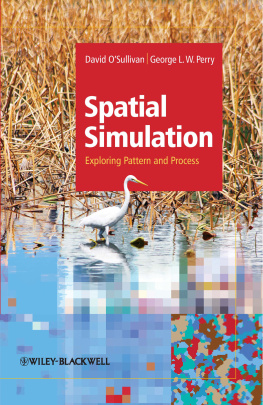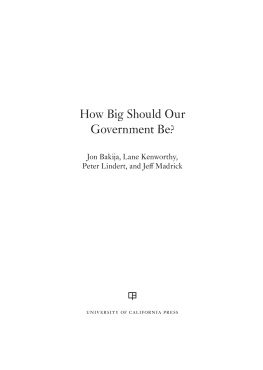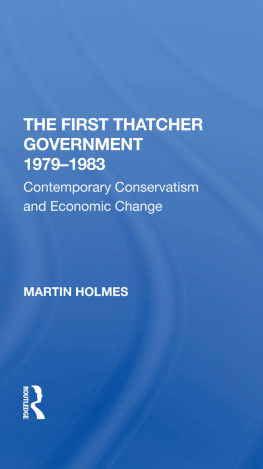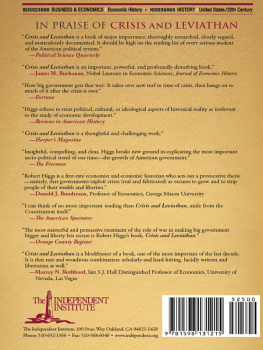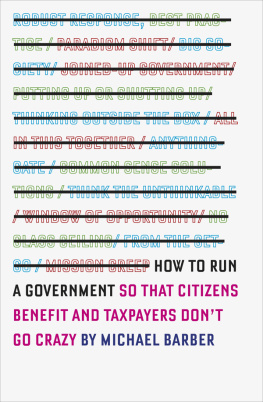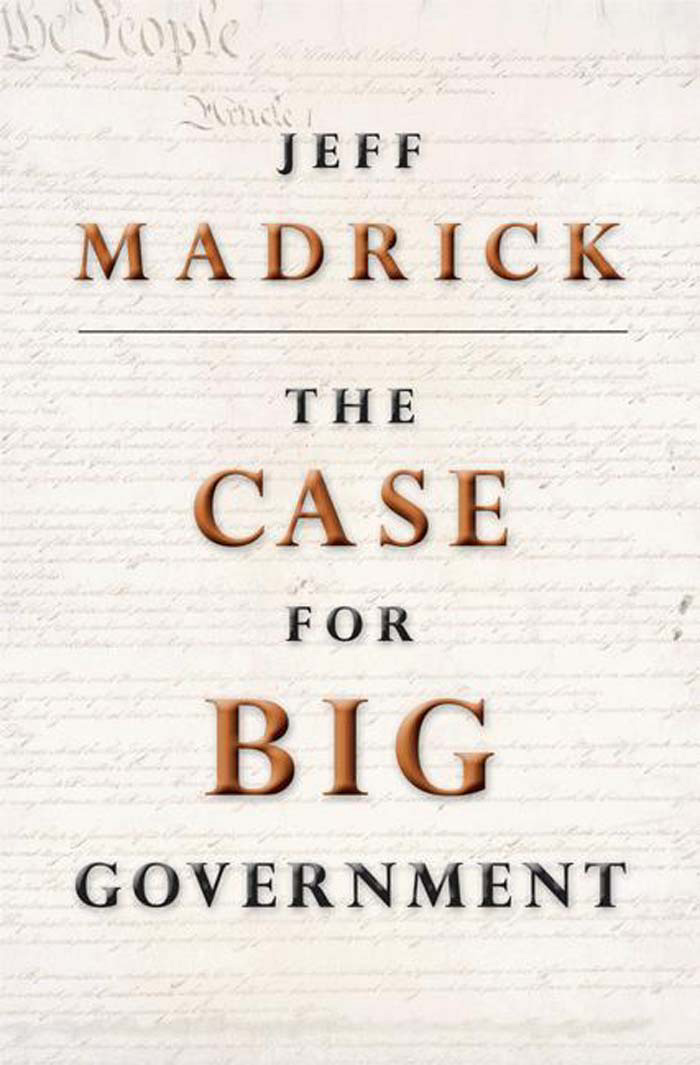THE
CASE
FOR
BIG
GOVERMENT


The Public Square Book Series/Princeton University Press
Ruth OBrien, Series Editor

Uncouth Nation: Why Europe Dislikes America
by Andrei S. Markovits
The Politics of the Veil by Joan Wallach Scott
Hidden in Plain Sight:
The Tragedy of Childrens Rights from Ben Franklin to Lionel Tate
by Barbara Bennett Woodhouse
The Case for Big Government
by Jeff Madrick
The Posthuman Dada Guide: tzara and lenin play chess
by Andrei Codrescu
With Thanks to the Donors of the Public Square
President William P. Kelly, the CUNY Graduate Center
JEFF
MADRICK

THE
CASE
FOR
BIG
GOVERMENT
With a new preface by the author

PRINCETON UNIVERSITY PRESS
PRINCETON AND OXFORD
Copyright 2009 by Princeton University Press
Requests for permission to reproduce material from this work should be sent to
Permissions, Princeton University Press
Published by Princeton University Press, 41 William Street,
Princeton, New Jersey 08540
In the United Kingdom: Princeton University Press, 6 Oxford Street,
Woodstock, Oxfordshire OX20 1TW
press.princeton.edu
A LL R IGHTS R ESERVED
Second printing, and first paperback printing,
with a new preface and foreword, 2010
Paperback ISBN: 978-0-691-14620-1
The Library of Congress has cataloged the cloth
edition of this book as follows
Madrick, Jeffrey G.
The case for big government / Jeff Madrick.
p. cm. (The public square book series)
Includes bibliographical references and index.
ISBN 978-0-691-12331-8 (hardcover : alk. paper) 1. United States
Politics and government. 2. Organizational effectivenessUnited States.
3. United StatesEconomic policy2001 I. Title.
JK421.M328 2009
320.973dc22
2008029706
British Library Cataloging-in-Publication Data is available
This book has been composed in Perpetua Typeface
Printed on acid-free paper.
Printed in the United States of America
3 5 7 9 10 8 6 4 2
For Samantha,
Harrison
and, of course,
Kim

ACKNOWLEDGMENTS

Without two talented and caring people, this book would not have happened. Based on lectures at the City University of New York, the book was enthusiastically and kindly initiated and supported by Ruth OBrien of CUNY and my editor, Brigitta van Rheinberg of Princeton University Press, now its editor-in-chief. Their help was invaluable. Peter Dougherty, Princeton University Press Director, was a constant supporter of the book as well. Again, many thanks. Two researchers in particular, Jason Harle and Nikolaos Papanikolaou, provided material and insights well beyond what was demanded of them. They deserve more than casual mention. Thanks also to the highly competent editorial and publicity staff of Princeton for their enthusiasm and professionalism. And sincere thanks also to two anonymous reviewers, as well as Brigitta van Rheinberg, whose diligent and good-faith comments were critical to the final outcome of this book.
Personal thanks must also go to my wife, Kim Baker, for her many insights, careful reading, and persistent encouragement. I would also like to thank Edward M. Kennedy, the senior senator from Massachusetts, for a lesson learned when I worked with him. America is a work in progress. It is not a finished product.
CONTENTS

FOREWORD

Ruth OBrien
Some books resonate. Some books profit from, and help instill, a political time to be heard. These same books, published in such a significant moment, wake us upthey jolt us with the realization that, had they been published a tad earlier, they might not have been well heard. They could have been passed over or ignored. Conceived in the depths of the second Bush administration, when the oracle on the rock was Wall Street high-risk speculative capitalism, Jeff Madricks timely book The Case for Big Government offered us a different narrative about our present, our past, and our future that only now hits home.
Madricks book is titled the case for big government. Although The Case for Big Government is authentic, or a calling as he describes it, the book is not about merely designing another New Deal, New Frontier, or Great Society. Nor is it limited to revealing an absence of reformreform that the 2008 national elections showed us we lacked for over two generations. No, the book is both more subtle and ambitious, as Madricks original wistful titleThe Purpose of Governmentindicated. This title encapsulated the simple, yet profound thesis that governments have purpose. Governments exist; they are built to do something. Through time governments have provided for their demos, their subjects, their citizens, their people, and their peoples. Representative democratic governments cannot be equated with umpires or worseguarding the security of the shipyard for their own take or self-interest, ensuring that no one messes with the rough-and-tumble speculative capitalism of the twenty-first century despite all the public harm income inequality creates.
What, as Madrick so poignantly asks, was the purpose of past American governments? Why did the government get blamed when the nation lost its way in the late 1970s with the oil crisis and stagflation? How did the myth of laissez-faire capitalism get moored and become so firmly anchored? How could this myth help propagate income inequality, among other economic and social problems, and yet the government remain the problem?
Now published in paperback, The Case for Big Government is being heard. For many, the government is no longer the problem. For others, namely critics on Fox News and in other rightwing organizations, the very term big government, they hope, will be heard again for their own rhetorical purposesto defeat another Democratic administration. Clearly, the very idea of government has sparked a debate, but because we live in a different time, a historic time, a time in which capitalism as we knew it crashed, never to returnor at least not return in its former twenty-first-century incarnation without the holes being patched up, water-safe, with great reforms and initiatives. But then again, who knows what the future will hold? The Obama administrations reforms could be deep and structural, demarcating governments returned purpose. Or they could be leaky boards, nailed and bent to suit global capitalisms times. Health care, bank reform, more economic stimulus packages, tax reform, energy legislationunder the Obama administration each could push us in so many different directions. And no doubt, each direction takes us close to the rocky shore. It is in this way that Madricks book introduces arguments that stimulated and will continue to stimulate worthy debate in the Public Square.


